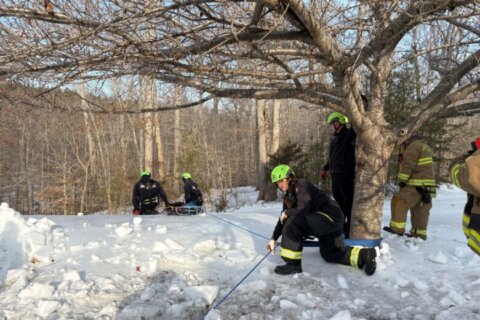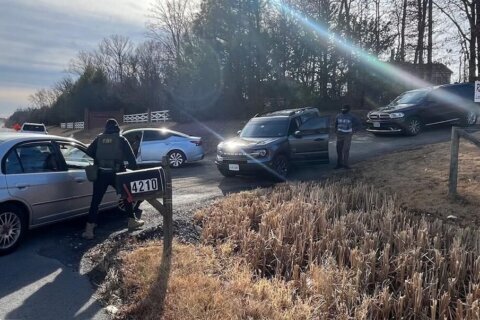This article was republished with permission from WTOP’s news partner InsideNoVa.com. Sign up for InsideNoVa.com’s free email subscription today.
This article was written by WTOP’s news partner, InsideNoVa.com, and republished with permission. Sign up for InsideNoVa.com’s free email subscription today.
Prince William County is providing drivers at its only taxicab company a small boost as they’re hit hard by surging gas prices.
Last week, the Board of Supervisors approved an emergency gas surcharge ordinance to raise base rates by $1 for 60 days while Yellow Cab of Prince William County seeks approval for a permanent rate change.
The rates, which went into effect March 15, will be $4 as a base and then $2 per mile.
The ordinance comes as gas prices in Northern Virginia averaged $4.18 per gallon for regular this week, according to AAA. A month ago, the average price was $3.50, and a year ago it was $2.83. The highest prices for a metropolitan area in Virginia are in Harrisonburg, where the average for a gallon of regular is $4.25.
The taxicab company is regulated by the state and local government. The state allows localities to establish ordinances governing specifically taxicab companies, giving the local government power to set and adjust rates.
Yellow Cab was established in 1978 as a consolidation of three companies that were founded as far back as 1940. It is the county’s only dedicated traditional taxicab service, which the state defines as any vehicle with a capacity of no more than six passengers, excluding the driver, not operating a regular route between fixed locations and not meeting other typical public transit definitions.
Yellow Cab owner Tammy Beard said the rates were last changed in 2008 when the initial rate was set at $3 and the charge per mile was raised from $1.80 to $2. In 2006, the charge per mile was raised from $1.50 to $1.80.
“Customers like us because they know what they’re going to pay,” she said, “If they ride with us today, tomorrow it’s going to be the same rate.”
The industry has been hammered by the growth of ride-sharing services like Uber and Lyft, which are not regulated.
Beard said the company has a fleet of 40 to 45 vehicles after the effects of the COVID-19 pandemic.
“We had just started to recover from the impact that Uber and Lyft had on us … then we got hit with COVID,” she said.
Ride-sharing companies not only cut business nearly 50%, they also led to a loss in drivers who opted to drive under Uber and Lyft. Once the pandemic took hold, Yellow Cab was down to only 25 cabs serving the entire county because riders were cautious to use the service.
The company was able to keep afloat through federal relief money by partnerships with local and regional governments or nonprofits. One of the programs was the Wheels to Wellness program, which provides rides for medical appointments and to pick up prescription medication.
Ridership was starting to pick up in 2021, but Beard noticed that gas prices weren’t fluctuating as usual and instead were continuing to rise. She spoke with her drivers, who are independent contractors, and they didn’t want to ask the county to approve the gas surcharge yet for fear it would reduce ridership.
As gas prices continued to rise, Beard worked with her drivers to agree on a number to ask the county. She submitted an application for a permanent rate change to the county’s Taxicab Review Board, but in the meantime lobbied the Board of Supervisors for an emergency ordinance to offset costs while the application is reviewed.
The surcharge is not unique to traditional taxi services. Uber and Lyft also recently announced plans to add between 35 and 55 cents to rides for at least 60 days.
The surcharges go directly to the drivers and won’t solve all the problems of rising gas prices, but will ease the burden.
“It has to help,” Beard said. “It can’t hurt.”
Beard said the Taxicab Review Board will consider the application at a meeting at 7 p.m. March 31 at the county office building. It will then make a recommendation to the Board of Supervisors, which votes on the final changes.







